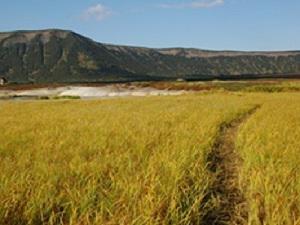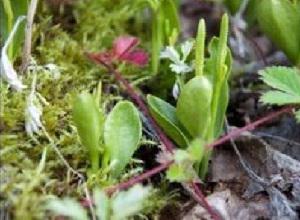Anna Zavadskaya
The main idea of the project is to detect environmental and social conditions and limitations of ecotourism development in Protected Areas of Kamchatka and to conduct a framework for sustainable ecotourism development in the region, providing conservation of unique and fragile landscapes of Kamchatka.

Tourist trail in geothermal area (Caldera of Uzon Volcano).
Protected areas cover over 14 percent of the surface of Kamchatka. In the last few years, the number of tourists traveling to PAs of Kamchatka has grown significantly. The rapid growth of tourist flow occurs in conditions of absence in most destinations of effective tools and programs for recreation management (including impact management). The most popular tourist objects have extremely fragile (geothermal, tundra and alpine) ecosystems therefore nowadays their managers are faced with the problem of recreational impacts displaying in the loss of vegetation, soil erosion, associated aesthetic degradation, and, finally, destruction of Red-listed species’ habitats and unique geothermal landscapes. Most of these managers are still lacking the instrument for conserving unique ecosystems of their PAs while using them in ecotourism.

Red-listed species in the Valley of Geysers Ophioglossum thermale Kom.
The aim of the project is designing of framework for conservation and protection of unique (particularly fragile geothermal ones) ecosystems of Kamchatka peninsula used in ecotourism and recreation.
The project is logically divided into two parts.
Part one of the project is devoted to development and implementation of the programme of recreation monitoring and is based upon detailed study of environmental (resource) impacts and social limitations, on finding the model indicators for long-term monitoring of visitor use and environmental impacts on the most fragile ecosystems of Kamchatka. It will be based on the results of environmental ground studies (geobotanical and soil impacts research) in tundra, geothermal and alpine ecosystems. For these purposes both the system of questionnaires for sociological surveys and procedures and protocols for assessing ecosystems condition parameters will be developed.
Part two of the project is devoted to research of social conditions of ecotourism development in the region. It includes the sociological survey of local communities which will be conducted by the project team in the period from June 2010 till June 2011. The survey will be realized through personal and telephone interviewing and on-line query. For these purposes the questionnaire will be developed by July 2010.
The key outcome of the project is creating the science-based framework of sustainable ecotourism development in Kamchatka, which could serve as an effective management tool for unique ecosystems’ conservation while their using in ecotourism. The work will also provide a strategy for study and conservation of recreation resources and conditions of the area with the active involvement of local inhabitants.